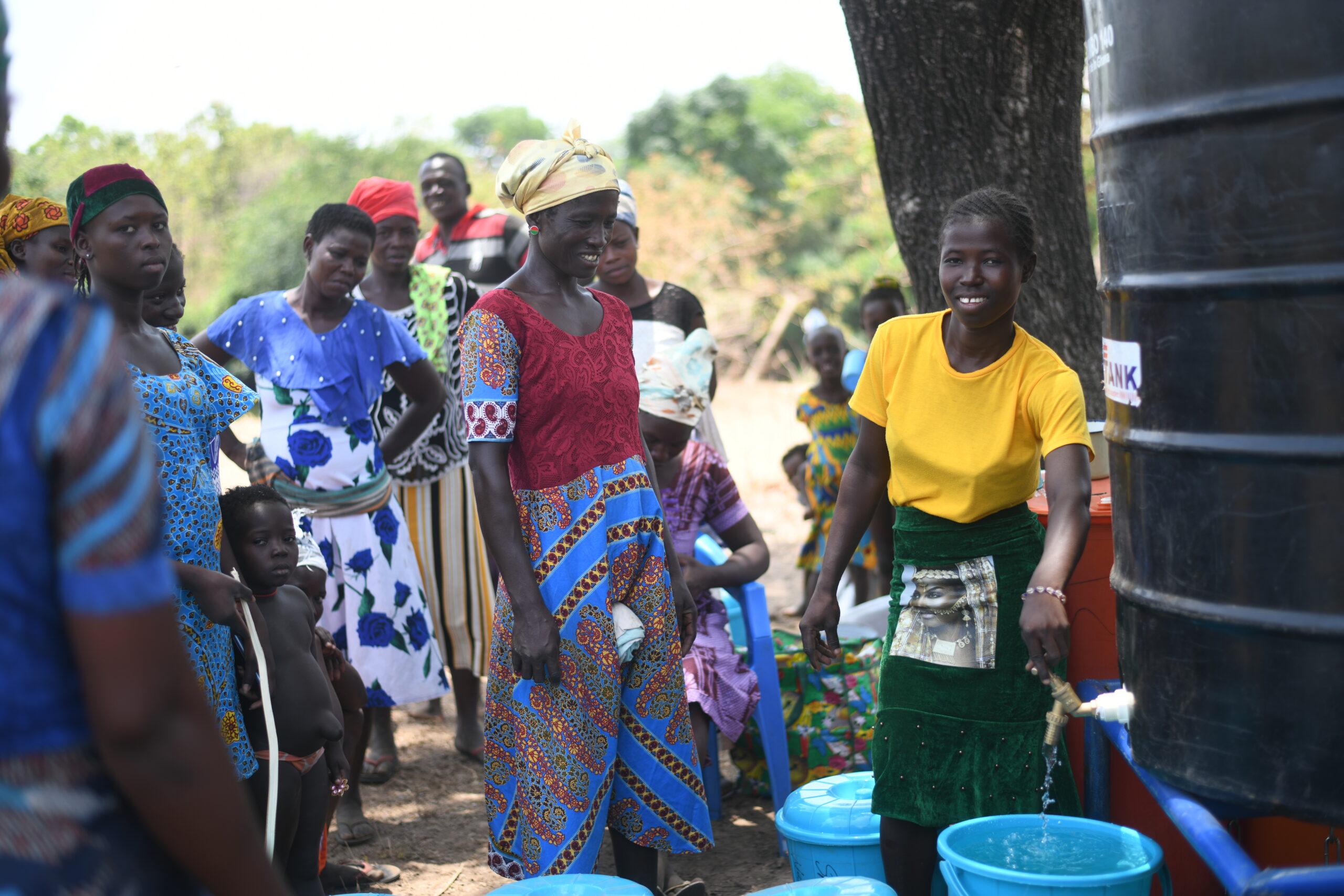New York, NY – Saha Global, a leading non-profit organization committed to ensuring safe and affordable water for rural communities, is proud to announce that it has been awarded a $5-million grant from the Conrad N. Hilton Foundation. This grant, extending over the next five years, marks a significant step in Saha’s mission to achieve universal, equitable, and affordable water access for underserved populations in Ghana.
Saha Global has spent over 15 years developing and refining an innovative, community-driven model that empowers local women as water entrepreneurs and provides affordable safe water to remote, rural villages. This grant will help the organization deepen its impact by expanding their water service to over 400,000 individuals living in some of Ghana’s most remote and vulnerable regions.
“We are deeply honored to receive this support from the Conrad N. Hilton Foundation, so we can continue to make a lasting impact in communities that are the hardest to reach and often overlooked,” said Kate Cincotta, Executive Director of Saha Global. “This grant is a critical step in expanding our efforts to reach vulnerable populations. It will allow us to advocate for the unique needs of people living in last-mile villages and to ensure that everyone in Ghana has reliable access to safe water.”
This new grant from the Hilton Foundation kickstarts Saha’s broader ambitions: to make access to clean water a fundamental human right, not a privilege. Saha’s long-term goal is to support the Government of Ghana in achieving universal water access for all, particularly for the most marginalized and underserved communities.

“We are pleased to support Saha’s innovative, women-led, safe water enterprise in Ghana,” said Brett Gleitsmann, Program Officer, Conrad N. Hilton Foundation. “We value Saha’s proven model to get professional water services to the most vulnerable populations living in remote, last-mile, rural communities and their long-standing commitment to work collaboratively with the Government of Ghana. We look forward to partnering together over the next five years to continue to expand safe water solutions for rural communities across Ghana.”
About Saha Global Founded in 2008, Saha has been at the forefront of delivering affordable, clean water solutions to rural Ghanaian communities. The organization has trained over 1,260 women water entrepreneurs, providing safe water to over 138,816 people in 464 rural villages. Saha’s model ensures reliable, professional water services in remote villages where other solutions have failed. It achieves long-term impact by focusing on water quality and safe water consumption.
About the Conrad N. Hilton Foundation The Conrad N. Hilton Foundation, established in 1944, is dedicated to improving the lives of disadvantaged individuals worldwide. Through its Safe Water Initiative, the Foundation has made significant investments in Ghana’s WASH sector, partnering with local governments and organizations to improve water infrastructure and access in rural communities. Their efforts support Ghana’s goal of universal access to safe water by 2030, with a focus on reaching marginalized, last-mile populations. The Foundation also prioritizes areas such as Homelessness, Foster Youth, Early Childhood Development, Catholic Sisters, and Disaster Relief.























